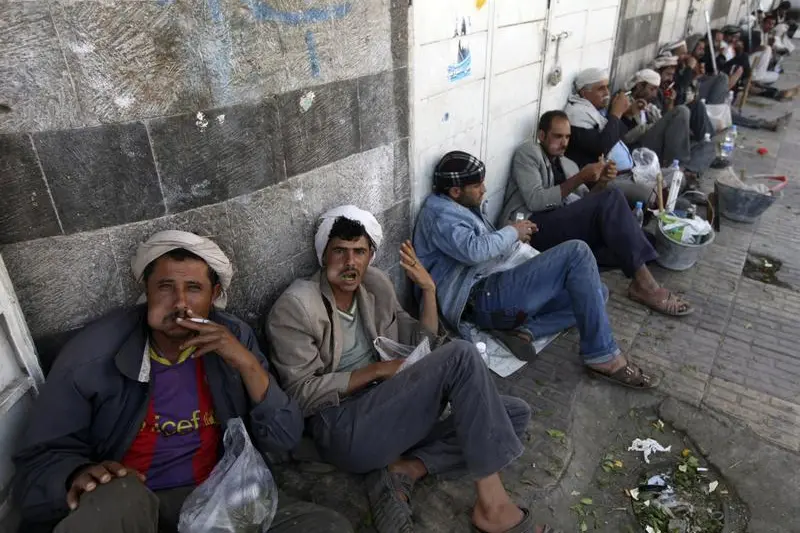PHOTO
Saturday, Apr 29, 2017
Dubai - Dubai
Around a quarter of the UAE population has family or friends who are affected by a natural disaster or a humanitarian crisis, according to a study, ‘Humanitarianism in the UAE,’ by NRS International, a Dubai-based company, that develops and manufactures products for humanitarian aid and public health.
The company published the results of a survey carried out by You-Gov market research last year, assessing the level of humanitarianism amongst UAE residents. The YouGov study surveyed more than 1,000 UAE residents, with nationalities including Emiratis, Arab Expats, Asians, and Westerners between ages 18 and 40+.
With an increasing number of humanitarian disasters taking place around the world, the number of displaced people globally reached 65.3 million in June 2016, according to the latest figures released by the UNHCR.
This means that one in every 113 people in the world is now either a refugee, internally displaced or seeking asylum.
With such a scale of unsettlement in the world, humanitarian causes assume a critical importance and with regard to humanitarianism in the UAE, the study showed that 73 per cent of people made a charity contribution in the past year, with more than half (43 per cent) donating in excess of $100 each year.
Dr Tara Wyne, Clinical Psychologist and Clinical Director at The Lighthouse Arabia in Dubai referred to the UAE’s diversity in cultures and religions as a factor that contributed to the high number of people who gave to charity last year. “Diversity brings together many cultures and races who all have traditions of compassion and ethics of social responsibility,” she said.
Wyne explained that many of the cultures found in the UAE are “collectivist cultures,” wherein people strive to serve the greater good. “All religions have at their heart, humanitarian codes, where one must only live comfortably when our neighbours are in a state of well-being. The diversity means that we can also learn and teach each other ways and means of giving back and caring for those suffering,” she added.
The reason human beings actively seek to be compassionate is because they find value in helping others in pain, said Dr Wyne. “(People) value acting in service of those less fortunate. These actions are meaningful to people and make them feel like they are authentically living their values,” she said.
Suffering has the power to move its observers and this is what drives people to either give money or time to humanitarian causes. The human ability to feel complex, pro-social emotions such as empathy, compassion, and altruism, allows them to relate to others by stepping into their shoes and imagining their suffering, she explained. Through giving, a connection is formed with others, and a person feels good for positively impacting another.
Charity trends among UAE residents
The study also showed that 80 per cent of the respondents in the UAE said that they are likely to continue their support of international humanitarian causes this year with the majority citing the importance of contributions in the aftermath of wars and natural disasters.
Farhaj Sarwar, managing director of NRS International, told Gulf News that “Raising awareness [on the need to support humanitarian causes] can be achieved in many different ways, from individuals who support charitable fund-raising activities to sharing refugees’ stories on social media or getting actively involved as a volunteer and sharing this experience in their respective communities.”
Sarwar referred to volunteerism as one of the quickest ways for people to get involved in charitable causes and become engaged in their community.
“Volunteers can serve as an important bridge between communities and formal service providers. It can inspire new ways of thinking and addressing a social problem,” she said.
She also encouraged companies big and small to take part in the ‘UN Business for Peace’ movement, an organisation that presents businesses with opportunities to assist in addressing the complex humanitarian challenges, and identifying ways they can help alleviate suffering.
According to the Development Assistance Committee of the Organisation for Economic Cooperation and Development, the UAE was listed as the biggest donor of foreign aid in 2014, with the NRS study also reflecting the continued positive attitude of residents across the country.
Box:
How you can contribute to the world’s humanitarian crisis:
•Register as a volunteer at International Humanitarian City (IHC) or Emirates Red Crescent, or other IHC-accredited charities.
•Support cultural activities such as film screenings, art exhibitions that address the issues, or participate in one of the many sports activities such as walks, runs or cycle events with a cause. This is not only active and healthy, but also a fun way to contribute.
•Carefully select and donate to one of the many globally accredited aid organisations such as Emirates Red Crescent, Islamic Relief, Save the Children just to name a few, who directly help victims of war and persecution in their specific capacity. Research their goals, track record and financial standings to ensure your money will reach those who need it the most and that the efforts are sustainable and long-term.
•Discuss the situation with your children and encourage them, their teachers and/or schools, to raise the topic in a child-friendly way. This can be done through arts and crafts projects or through class projects. Many aid organisations have teaching materials available that can be used in a classroom.
By Jumana Khamis Staff Reporter
Gulf News 2017. All rights reserved.





















